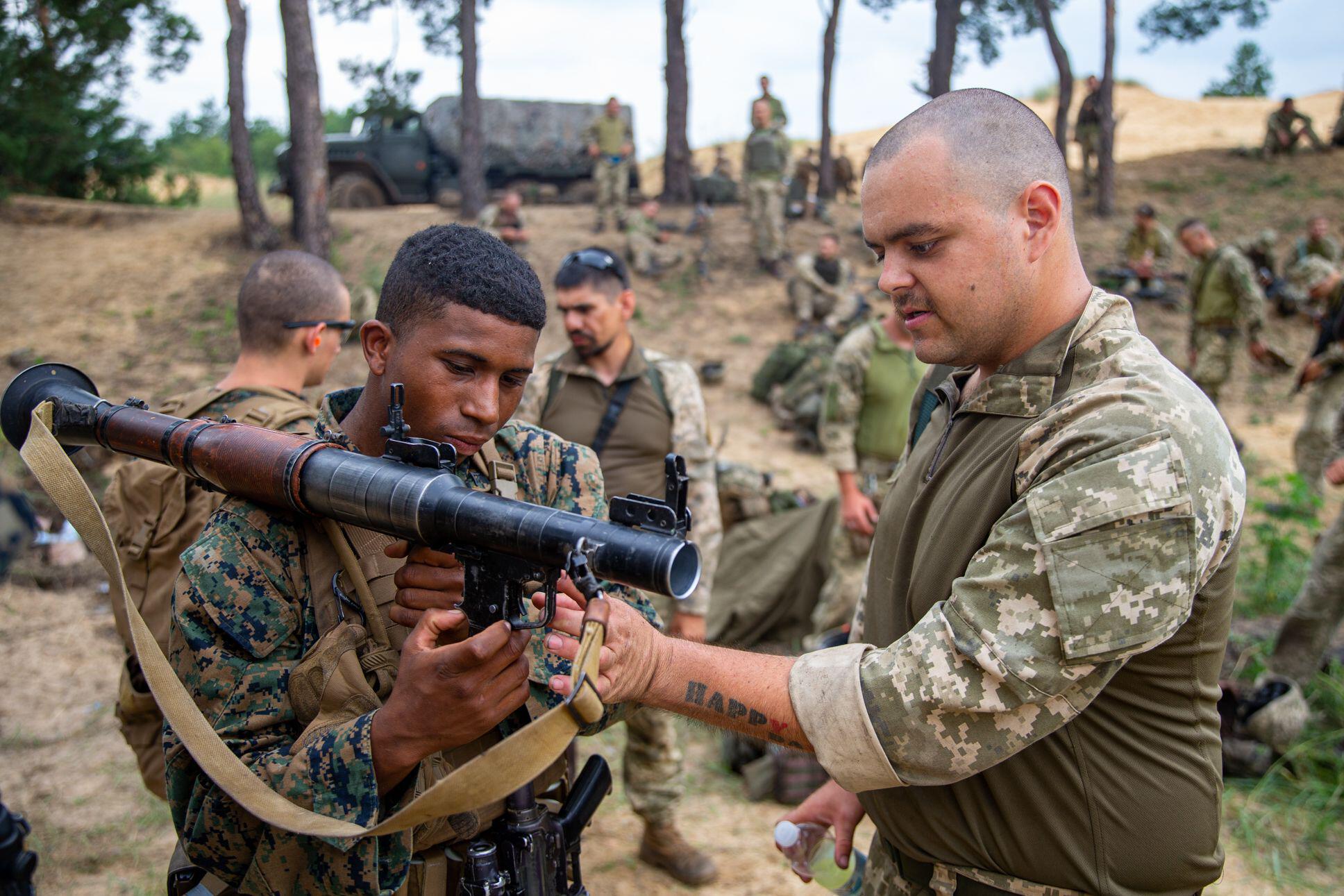Freed British fighter admits he did not think he would survive captivity
Aiden Aslin was beaten, stabbed and forced to listen to Soviet songs in a small cell 24-hours a day.

Your support helps us to tell the story
From reproductive rights to climate change to Big Tech, The Independent is on the ground when the story is developing. Whether it's investigating the financials of Elon Musk's pro-Trump PAC or producing our latest documentary, 'The A Word', which shines a light on the American women fighting for reproductive rights, we know how important it is to parse out the facts from the messaging.
At such a critical moment in US history, we need reporters on the ground. Your donation allows us to keep sending journalists to speak to both sides of the story.
The Independent is trusted by Americans across the entire political spectrum. And unlike many other quality news outlets, we choose not to lock Americans out of our reporting and analysis with paywalls. We believe quality journalism should be available to everyone, paid for by those who can afford it.
Your support makes all the difference.One of five Britons released from captivity by Russian-backed forces has said he did not believe he would survive the ordeal.
Aiden Aslin, who landed in Britain early on Thursday after being set free the day before, told The Sun he was beaten, stabbed and forced to listen to Soviet songs in a small cell 24-hours a day.
“I never thought I’d get out alive,” he told the paper.
The Notts-born 28-year-old had been living in Ukraine for a number of years and was serving with its regular forces when the full-scale war broke out.
His battalion ran out of food and ammunition during the siege of Mariupol in April, with the fighter phoning his mother and Ukrainian girlfriend before they surrendered to say: “No matter what, I will see you again.”
He was punched in the face when his captors realised he was British, Mr Aslin told the paper.
“They flicked through my passport and quickly realised it wasn’t Ukrainian.
“The soldier asked in Russian, ‘Where are you from?’ I told him I was from Great Britain and he punched me in the face.
“They separated me from the others and began interviewing me in the back of an armoured vehicle.
“I went to my commander and said, ‘Look I’m going to be taken, they’re probably going to kill me, I need you to tell my family when you get out, if you get out, that I love them’.”
He was taken to the self-proclaimed Donetsk People’s Republic, where he was beaten during an interrogation prior to the Russian-backed forces announcing his capture to the world.
He told The Sun of the beating: “The officer was smoking a cigarette and knelt down in front of me to ask, ‘Do you know who I am?’ I said ‘no’ and he replied in Russian, ‘I am your death’.
When I heard I’d been given the death sentence I wanted to cry but I just couldn’t. It was literally a matter of surviving
“He said, ‘Did you see what I did to you?’. He pointed to my back. He showed me his knife and I realised he’d stabbed me.
“He then asked me, ‘Do you want a quick death or a beautiful death?’.
“I replied in Russian, ‘A quick death’. He smiled and said ‘No, you’re going to have a beautiful death… and I’m going to make sure it’s a beautiful death.”
A Donetsk court sentenced Mr Aslin and fellow Briton Shaun Pinner to death in July.
He said: “During the entire five months in captivity, I couldn’t cry.
“When I heard I’d been given the death sentence I wanted to cry but I just couldn’t. It was literally a matter of surviving.
“Your life is in the hands of these people and you do what they tell you to do or you suffer the consequences.
“Despite everything we went through, I knew sooner or later we would see light at the end of the tunnel and that I would get back to see Diane and my family.”
It is understood Mr Aslin was set free on Wednesday alongside Mr Pinner, John Harding, Dylan Healy and Andrew Hill, landing in Britain in the early hours of Thursday morning.
Mr Harding previously told The Sun that former Chelsea Football Club owner Roman Abramovich welcomed them onto their flight out of Russia.
A photo issued by the Foreign Office appeared to show a beaming Mr Pinner with his loved ones.
Mr Harding, Mr Pinner and Mr Aslin were hailed as defenders of “democracy and freedom” by their former commander in Ukraine.
They are believed to have served in the Georgian Legion, a pro-Ukrainian volunteer unit, under Mamuka Mamulashvili.
“All those guys did their best to defend democracy and freedom,” Mr Mamulashvili told the PA news agency.
It comes as the family of British aid worker Paul Urey, who was reported to have died while being detained by Russian-backed separatists in Ukraine, said the repatriation of his body will give them closure.